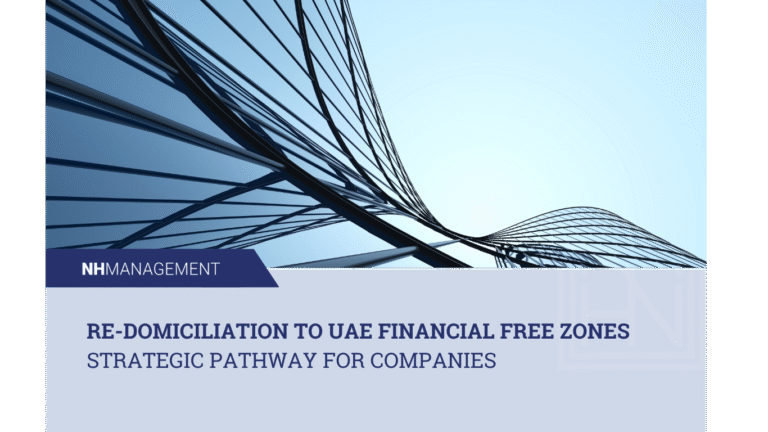DIFC Company Set Up: Legal Requirements and Procedures
The Dubai International Financial Centre (DIFC) is one of the most prominent financial free zones in the world. Known for its independent legal framework, global connectivity, and tax-friendly environment, DIFC is the top choice for businesses looking to establish a presence in Dubai. Whether you’re launching a financial services firm, fintech startup, or global HQ, understanding the DIFC company set up process is crucial to a successful start.
In this blog, we’ll guide you through the legal requirements, formation procedures, and ongoing compliance standards for launching your business in DIFC.
What Makes DIFC Unique?
DIFC is a common law jurisdiction in Dubai operating independently of UAE’s civil law system. Alongside Abu Dhabi Global Market (ADGM), it is one of the only two official financial free zones in the UAE. DIFC is governed by the DIFC Authority and regulated by the Dubai Financial Services Authority (DFSA), offering a robust and internationally aligned regulatory framework.
Why Set Up a Company in DIFC?
Businesses choose DIFC for:
-
Strategic Location: In the heart of Dubai, connected to MEASA markets
-
Tax Incentives: 0% income and profit tax for 50 years
-
Common Law Legal System: Predictable and transparent legal environment
-
DFSA Oversight: Strong financial regulations and governance
-
World-Class Infrastructure: Grade-A office space, digital services, and global banking
-
Access to Capital: Home to investment firms, VC funds, and banks
Understanding the legal requirements for a successful DIFC company set up is essential to avoid delays and ensure regulatory approval. While DIFC is a premier financial jurisdiction, entrepreneurs may also consider the benefits of forming a company in DMCC free zone, which offers attractive incentives for commodity trading, tech startups, and international businesses.
Legal Requirements for DIFC Company Set Up
1. Choosing a Business Structure
Options include:
-
Company Limited by Shares (Ltd): Suitable for larger entities
-
Limited Liability Company (LLC): Ideal for SMEs
-
Branch Office: For foreign companies without creating a new entity
-
Representative Office: Limited to marketing and liaison activities
2. Share Capital Requirements
-
Ltd: Minimum share capital of USD 50,000
-
LLC: Typically USD 10,000
-
Branches & Rep Offices: No capital requirement
3. Shareholders & Directors
-
Shareholders: Minimum one (Ltd) or two (LLC); individuals or corporates
-
Directors: Minimum of two; no nationality restriction
4. Registered Office
All DIFC companies must lease or maintain a registered office within the DIFC free zone.
5. Compliance with DIFC Laws
Ongoing legal compliance includes:
-
Maintaining updated financial records
-
Submitting annual returns
-
Conducting external audits by approved DIFC auditors
Step-by-Step Procedure for DIFC Company Set Up
Step 1: Consultation & Planning
Speak with legal and business advisors (like NH Management) to select the right structure and prepare documentation.
Step 2: Name Reservation
Submit 2–3 name options that meet DIFC naming rules for approval.
Step 3: Application Submission
Include:
-
Company structure and ownership details
-
Business activity and plan
-
Director/shareholder information
-
Proof of office space
-
Share capital details
Step 4: DIFC Review and Approval
Once approved, DIFC issues a Certificate of Incorporation and legal documents.
Step 5: Bank Account Opening
Post-incorporation, open a business bank account in DIFC or another approved financial institution.
Step 6: Office Lease Finalization
Lease office space or apply for flexi-desk options based on business activity.
Step 7: Licensing
Apply for necessary operating licenses. If you’re in financial services, obtain a license from DFSA.
Step 8: Visa & Employment Setup
Your DIFC company can sponsor residency visas for employees and investors.
Ongoing Compliance in DIFC
Annual Filings
File financial statements and annual returns with DIFC’s Registrar of Companies.
Audits
All companies must be audited annually by DIFC-approved auditors.
License Renewal
Renew your business license annually with updated documentation and fee payment.
DFSA Compliance (for Financial Firms)
Strict reporting and internal control standards must be met.
Challenges to Consider
-
Regulatory Complexity: DIFC follows common law, which may differ from UAE civil law zones.
-
Higher Costs: DIFC setup and maintenance are costlier than other free zones.
-
Sector-Specific Licensing: Financial firms face additional DFSA scrutiny and approval timelines.
Why Work with NH Management for DIFC Company Set Up?
At NH Management, we specialize in guiding companies through the DIFC company set up process—legally, strategically, and efficiently. Our consultants provide:
-
Step-by-step incorporation support
-
Legal and regulatory documentation assistance
-
DFSA license application handling
-
Office and visa setup guidance
-
Ongoing compliance and audit coordination
Our end-to-end DIFC company set up services ensure that your business meets all legal, operational, and compliance requirements with efficiency and confidence.
Ready to Establish in DIFC?
Setting up your company in DIFC positions you at the center of finance, fintech, and innovation in the UAE. Let NH Management help you navigate every step.
Contact us today at info@nhmanagement.com or call +971 4 222 1327 to speak to our DIFC business consultants.






